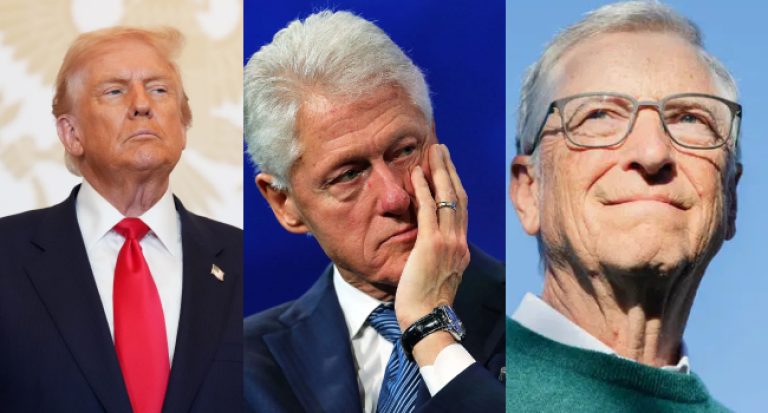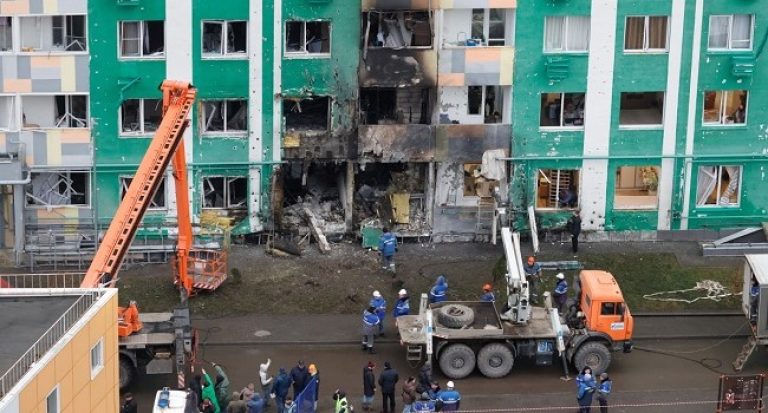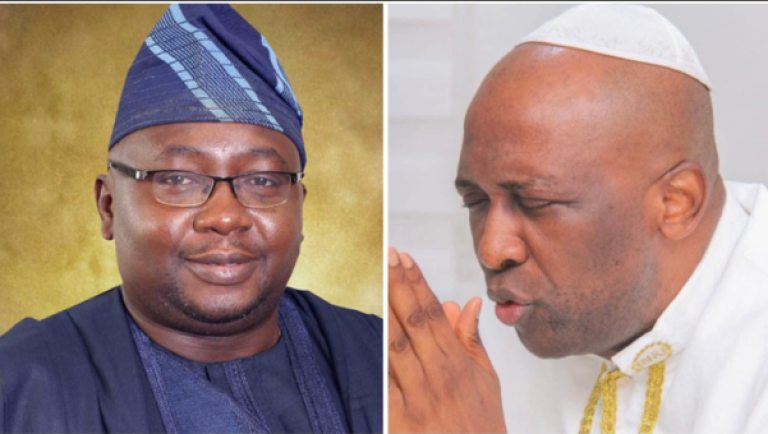
When their dogs started digging insistently at a spot in the woods, villagers in Zavalivka called in the authorities.
A Ukrainian military team were soon at the scene in white protective suits, carefully removing the topsoil.
They uncovered a man’s body, face down with his legs oddly twisted beneath him. It was clear from his uniform that he was a Russian soldier.
Short presentational grey line
Weeks after they failed to seize Ukraine’s capital, the remains of Russian troops are still being discovered in and around the villages they passed through or occupied near the capital, Kyiv. But Ukraine says Russia shows little interest in getting them back.
From the grave in the woods, the body was removed to a refrigerated train on the outskirts of Kyiv that now operates as a mobile morgue for the Russian dead.
The white plastic sacks are marked with numbers rather than names and there were at least 137 stacked inside two carriages on the day we visited.
The Ukrainians attempt to identify the dead: on the body just brought in, the forensics team turned up two bank cards, as well as badges for a Russian motorised rifle brigade.
“At least this one has a chance of getting home,” the man in charge announced, displaying the finds, including a soiled fragment of T-shirt printed with the Army of Russia logo.
Moments later, I confirmed that the man I had just seen exhumed had been a young, married soldier from Siberia. Next to his body bag, a carefully posed black-and-white photograph from his social media profile stared out from my phone.
Russia has a proud slogan: “We don’t abandon our own.” It’s a big part of President Vladimir Putin’s supposed justification for invading Ukraine, where he falsely claimed Russian-speakers needed protection.
That pledge appears not to apply so much to Russia’s own soldiers.
“The bodies we’ve found show they treat people as rubbish, as cannon fodder,” Col Volodymyr Liamzin told the BBC. “They don’t need their soldiers. They throw them here, retreat – and leave the bodies.”
We don’t actually know how the young soldier in the woods came to be abandoned. The villagers in Zavalivka say they were mostly hiding in their cellars from shelling at the time – they assume he was injured and got lost as his unit was forced to retreat.
From what we’ve learned of the Russian troops fighting around Kyiv, many were young and inexperienced. It’s likely they were fleeing under fire.
“We did do one swap,” Col Liamzin says, explaining that the Russian side provided a shortlist of the dead soldiers it wanted returned.
“We’re ready to give them all back, we want our own dead returned too. We knock on every door there is, but there is no response, no dialogue,” the colonel says.
The delay in collecting bodies isn’t unique to Russia.
Neither side in this war is open about the number of casualties suffered. We’ve spoken to several Ukrainian families who say their own government has been less than helpful in recovering the remains of Ukrainian soldiers from the battlefield.
One woman, who was told of her husband’s death by the men in his unit, said she had been trying to recover his body for almost three months.
But the Russian dead are being discovered here all the time.
Just up the road from Zavalivka in Sytnyaky, the village elder told us at least 10 Russian soldiers were killed and left behind in March, probably more.
Their column was ambushed after they lost their way: the locals had removed and switched the traffic signs.
The battle was fierce. What was once a roadside restaurant at the spot is now a heap of rubble, a bit of wall and a giant aquarium that somehow survived the assault.
Leaflets in the ruins call on Russian soldiers to surrender and save their lives, and spare the blood of Ukrainian children.
The village elder says he and others buried the Russians after the battle “for sanitary reasons”. When I look quizzical, he says most were blown to pieces.
He wasn’t allowed to show us the graves: they constitute a crime scene until Col Liamzin’s team can get round to visiting and exhuming the site. But his dig-list is already long. (BBC)





